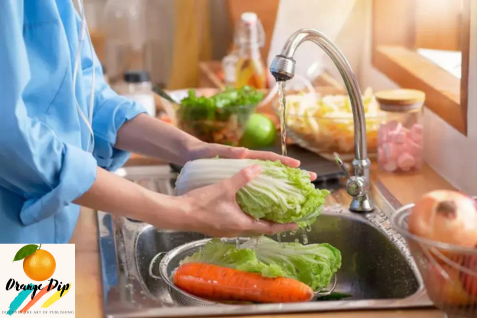Proper food hygiene is essential for any food business. By following key food hygiene practices, you can help ensure the safety of your customers and the success of your business. In this article, we will explore the most important steps you need to take to maintain excellent hygiene standards in your food establishment.
Having Quality Industrial Hygiene Equipment
Investing in proper hygiene equipment for food industry is crucial. Hygiene equipment includes items like sanitizers, sterilizers, food-grade cleaning products, and more. This equipment is specially designed to clean and sanitize food surfaces quickly and effectively.
When searching for food hygiene equipment, look for equipment made of non-porous, food-safe materials that won’t scratch, chip or accumulate bacteria. Stainless steel is an ideal option. Easy-to-clean sink units, chopping boards, storage containers, and commercial dishwashers are also essential hygiene equipment for food businesses.
Having the right hygienic equipment is one important aspect of maintaining high food hygiene standards. But equipment alone is not enough – you also need proper cleaning processes and staff training.
Effective Cleaning Processes
Developing effective cleaning processes is key to keeping your food premises hygienic. Start by identifying areas that need frequent cleaning like food prep surfaces, storage areas, and waste areas. Make daily, weekly, and monthly cleaning schedules accordingly.
Use the right cleaning products – look for commercial-grade, food-safe sanitizers and disinfectants. Read the product labels so you use them correctly and safely. Always follow the manufacturer’s dilutions and contact times to allow the products to fully work.
Clean areas should be cleared of clutter and debris before beginning the cleaning process. Use hot water and scrub brushes to remove stuck-on food and grease from surfaces and equipment. Rinse thoroughly after cleaning. Let all surfaces air dry fully before reuse.
Regular deep cleaning and maintenance of refrigerators, freezers, grease traps, and vents will also help optimize hygiene. Document your cleaning processes so staff can be properly trained. Auditing and supervision will help ensure the processes are followed consistently.
Staff Hygiene Training
The most meticulous cleaning processes will fail without proper staff training in food hygiene principles. All food handling personnel should receive training on personal and operational hygiene. Hand washing is one of the easiest ways germs spread via food.
Ensure staff know how to wash hands effectively – wet hands, use soap, scrub vigorously including the backs of hands, between fingers, and under nails for at least 20 seconds. Hands should be washed at all of these times:
- Before starting work
- Before and after handling raw food
- After touching hair, face, body, clothing, or apron
- After using the toilet
- After cleaning tasks
- After handling waste
- After eating, drinking, smoking
- After blowing your nose or sneezing
Additionally, train staff on keeping work surfaces clean, controlling pests, managing food temperatures, waste disposal, illness reporting, and all other aspects of your food hygiene system.
Maintaining excellent hygiene standards requires an ongoing investment of time and resources. But the payoff is keeping your customers safe and your business reputation strong. By implementing proper food hygiene equipment, cleaning processes, and staff training, you are taking the essential steps needed for success.


